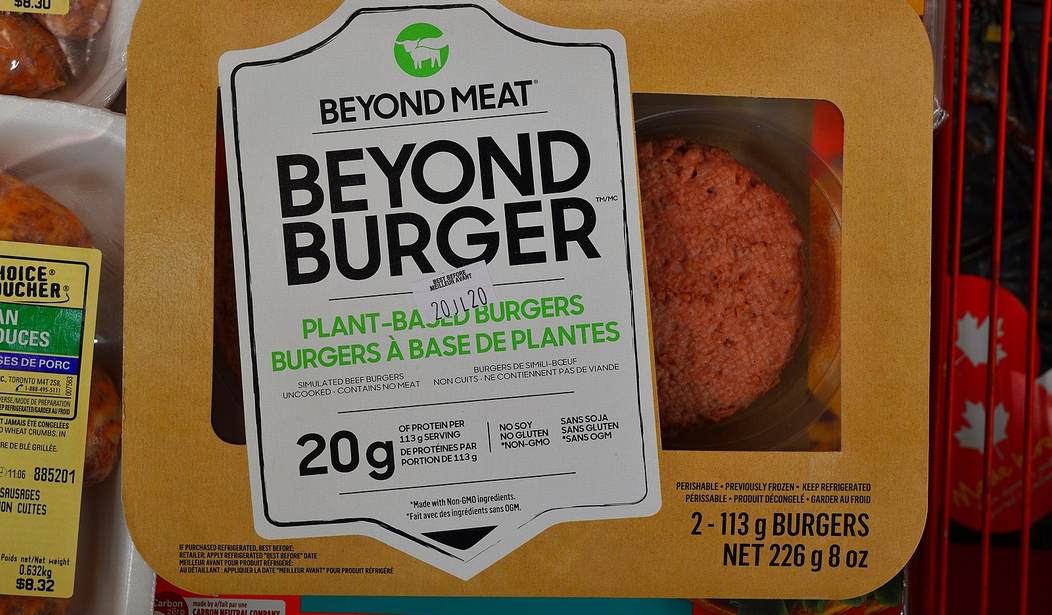It turns out that as long as actual meat is available, most rational humans would rather have that than more expensive, lab-grown non-meat. In due time, of course, the technocrats will soon remedy the rational consumer issue if they have their way by simply outlawing actual meat.
Eliminating choices for the peasants is what governments do in a Democracy™, after all. Those are Our Values™.
This dilemma of non-choice for the consumer was illustrated well in the following scene from “Breaking Bad”:
Walter White: I know all about your operation. My partners here tell me that you produce a meth that’s 70% pure, if you’re lucky. What I produce is 99.1% pure.
Subpar meth manufacturer: So?
Walter White: So… it’s grade school tee-ball vs. The New York Yankees. Yours is just some tepid… off-brand, generic cola. What I’m making is classic Coke.
Subpar meth manufacturer: All right. Okay. So, um… If we just waste you right here, right now, and leave you in the desert then there is no more coke on the market, right? See how that works? There’s only us.
Walter White: Do you really wanna live in a world without Coca-Cola?
I don’t want to live in a world without Coca-Cola. And neither, apparently, do most rational consumers of animal products.
Related: Irish Government Wants to Spend €600 Million to Sacrifice 65,000 Cows for Climate Change
Via The Conversation (emphasis added):
It’s difficult to tell if the recent wave of anti-vegan sentiment has affected the plant-based meat market, but denigrating the image of vegans has certainly gone mainstream.
Alongside negative comments about people who don’t eat meat by figures like Piers Morgan and Jeremy Clarkson, anti-vegan rhetoric has even slipped into political discourse: Suella Braverman recently referred to supporters of Just Stop Oil campaigners as “Guardian-reading, tofu-eating wokerati”. It seems our protein choices have become a surprisingly loaded issue.
These days, consumers are faced with a dizzying array of choices when it comes to protein, particularly since US plant-based producer Beyond Meat started its quest to disrupt the market in 2012. Since then, its innovative take on the veggie burger, made from pea protein to mimic the taste and texture of meat, has helped the company become a runaway success.
But despite sustained growth for several years, sales of plant-based meat products are now stagnating. Even market leaders like Beyond Meat are hitting significant lows.
Vegan propagandists seem to think that the problem is with marketing rather than the unattractiveness of the product they are peddling.
Continuing:
To further test the idea that the environment could cause problems when advertising to conservative consumers, we created different messages, varying the environmental content. We developed mock Facebook ads that described either the health and environmental benefits of plant-based meat, or just the health benefits. We found that advertising content based on the environment turned off the conservative consumers involved in our study.
Of course, our study was carried out among US consumers. But the trend of political polarisation seen across Europe, and recent comments about the vegan “wokerati” lifestyle from UK public figures, means we could see similar results in other countries.
For an advertising message to successfully resonate and change either a consumer’s attitude or behaviour, “congruence” is required. This is when the message content aligns with the characteristics of its recipient. We found that environmental messaging is incongruent to conservative consumers, meaning these ads don’t spark either their curiosity or interest. Without that spark, you can’t engage consumers.
This is your brain on advertising. The problem is always that the consumer simply isn’t receiving the right combination of emotional manipulation and false promises. It’s never that the product being sold sucks and no one trusts the proprietors.
Bill Hicks had some great advice back in the day for advertisers/marketers.










